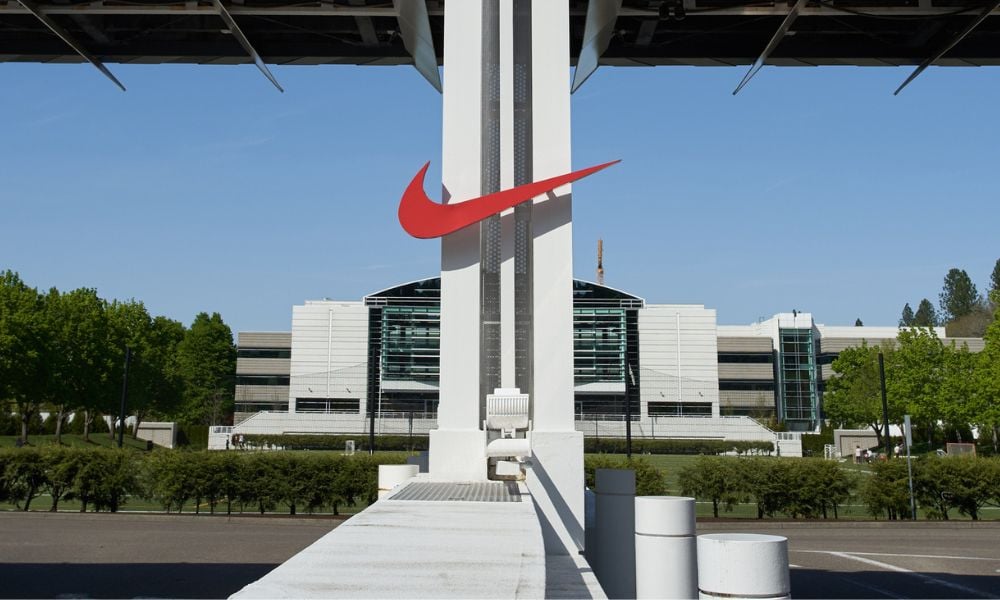The former chief talent officer of streaming giant Netflix explains how the company created a ‘Culture Deck’ that has since gone viral.
Patty McCord was the chief talent officer at Netflix between 1998 and 2012.
In a recent article for the Harvard Business Review, McCord outlined how Netflix reinvented HR to create the viral ‘Netflix Culture Deck’ (NCD).
Describing the NCD, Netflix CEO Reed Hastings previously said that not enough HR departments are thinking innovatively.
“Many of the ideas in it seem like common sense, but they go against traditional HR practices,” he said. “Why aren’t companies more innovative when it comes to talent management? As a society, we’ve had hundreds of years to work on managing industrial firms, so a lot of accepted HR practices are centred in that experience. We’re just beginning to learn how to run creative firms, which is quite different.”
McCord referred to two “overarching principles” which are ingrained in Netflix’s talent management philosophy:
“The best thing you can do for employees – a perk better than foosball or free sushi – is hire only ‘A’ players to work alongside them,” she said. “Excellent colleagues trump everything else.”
The second element of the company’s approach is a willingness to let go of people whose skills no longer fit, “no matter how valuable their contributions had once been”.
“Out of fairness to such people—and, frankly, to help us overcome our discomfort with discharging them—we learned to offer rich severance packages,” McCord said.
With these principles in mind, Netflix’s HR team, along with the CEO, shaped their approach to talent.
The final result consists of five key elements.
1. Hire, reward, and tolerate only fully-formed adults
“If you’re careful to hire people who will put the company’s interests first, 97% of your employees will do the right thing,” McCord said.
“Most companies spend endless time and money writing and enforcing HR policies to deal with problems the other 3% might cause,” she explained. “Instead, we tried really hard to not hire those people, and we let them go if it turned out we’d made a hiring mistake.”
McCord added that “adult-like behaviour” is aligned with open discussion with bosses, colleagues and subordinates.
“It means recognizing that even in companies with reams of HR policies, those policies are frequently skirted as managers and their reports work out what makes sense on a case-by-case basis,” she said.
2. Tell the truth about performance
Many years ago, Netflix eliminated formal performance reviews.
“We had held them for a while but came to realize they didn’t make sense,” McCord said. “They were too ritualistic and too infrequent.”
Instead, HR asked managers and employees to have conversations about performance as an “organic part of their work”.
When Netflix stopped holding formal reviews, informal ‘360-degree reviews’ took their place.
“We kept them fairly simple,” McCord explained. “People were asked to identify things that colleagues should stop, start, or continue. In the beginning we used an anonymous software system, but over time we shifted to signed feedback, and many teams held their 360s face-to-face.”
“In my experience, people can handle anything as long as they’re told the truth,” she continued.
3. Managers own the job of creating great teams
According to McCord, managers should always be thinking forward – never settling for what they already have.
“I ask managers to imagine … what their team is accomplishing six months from now,” she said, asking two specific questions:
What specific results do they see?
How is the work different from what the team is doing today?
“Nowhere in the early stages of the process do I advise them to think about the team they actually have,” McCord elaborated.
“Only after they’ve done the work of envisioning the ideal outcome and the skill set necessary to achieve it should they analyse how well their existing team matches what they need.”
“If you’re in a fast-changing business environment, you’re probably looking at a lot of mismatches,” she added. “In that case, you need to have honest conversations about letting some team members find a place where their skills are a better fit. You also need to recruit people with the right skills.”
When Netflix shifted from working with DVDs to online streaming, the company needed to recruit experienced employees with a working knowledge of cloud technology.
McCord explained that this meant finding people who had worked for companies that operate on a giant scale—companies like Amazon, eBay, Google, and Facebook. She admitted that these “aren’t the easiest places to hire someone away from”.
“We believed in market-based pay and would tell employees that it was smart to interview with competitors when they had the chance, in order to get a good sense of the market rate for their talent,” she said. “Many HR people dislike it when employees talk to recruiters, but I always told employees to take the call, ask how much, and send me the number—it’s valuable information.”
“If you see a better opportunity elsewhere, you should be allowed to take what you’ve earned and leave. If you no longer want to work with us, we don’t want to hold you hostage.
“We continually told managers that building a great team was their most important task. We didn’t measure them on whether they were excellent coaches or mentors or got their paperwork done on time.”
4. Leaders own the job of creating the company culture
McCord said that she tends to see three issues that need attention when leaders are attempting to mould their corporate culture.
The first of these is “mismatch”.
“I frequently see CEOs who are clearly winging it,” she said. “They lack a real agenda. Workers notice these things, and if they see a leader who’s not fully prepared and who relies on charm, IQ, and improvisation, it affects how they perform, too. It’s a waste of time to articulate ideas about values and culture if you don’t model and reward behaviour that aligns with those goals.”
Another issue is around a lack of employees having a grasp on “the levers that drive the business”.
“Even if you’ve hired people who want to perform well, you need to clearly communicate how the company makes money and what behaviours will drive its success,” McCord said. “At Netflix, employees used to focus too heavily on subscriber growth, without much awareness that our expenses often ran ahead of it. Our employees needed to learn that even though revenue was growing, managing expenses really mattered.”
The third issue is something I call the split personality start-up. At Netflix, I sometimes had to remind people that there were big differences between the salaried professional staff at headquarters and the hourly workers in the call centers. As leaders build a company culture, they need to be aware of subcultures that might require different management.
The third issue is what McCord has dubbed “the split personality start-up”.
“At Netflix, I sometimes had to remind people that there were big differences between the salaried professional staff at headquarters and the hourly workers in the call centres,” she said. “As leaders build a company culture, they need to be aware of subcultures that might require different management.”
5. Good talent managers think like innovators first – and like HR people last
“Too many [HR professionals] devote time to morale improvement initiatives,” McCord said. “At some places, entire teams focus on getting their firm onto lists of ‘Best Places to Work’. During 30 years in business I’ve never seen an HR initiative that improved morale.”
She advised that “instead of cheerleading”, HR departments should think of themselves as businesspeople.
“What’s good for the company?” she queried. “How do we communicate that to employees? How can we help every worker understand what we mean by high performance?
“Here’s a simple test: if your company has a performance bonus plan, go up to a random employee and ask, ‘Do you know specifically what you should be doing right now to increase your bonus?’ If he or she can’t answer, the HR team isn’t making things as clear as they need to be.”
The Netflix Culture Deck can be found here.
In a recent article for the Harvard Business Review, McCord outlined how Netflix reinvented HR to create the viral ‘Netflix Culture Deck’ (NCD).
Describing the NCD, Netflix CEO Reed Hastings previously said that not enough HR departments are thinking innovatively.
“Many of the ideas in it seem like common sense, but they go against traditional HR practices,” he said. “Why aren’t companies more innovative when it comes to talent management? As a society, we’ve had hundreds of years to work on managing industrial firms, so a lot of accepted HR practices are centred in that experience. We’re just beginning to learn how to run creative firms, which is quite different.”
McCord referred to two “overarching principles” which are ingrained in Netflix’s talent management philosophy:
“The best thing you can do for employees – a perk better than foosball or free sushi – is hire only ‘A’ players to work alongside them,” she said. “Excellent colleagues trump everything else.”
The second element of the company’s approach is a willingness to let go of people whose skills no longer fit, “no matter how valuable their contributions had once been”.
“Out of fairness to such people—and, frankly, to help us overcome our discomfort with discharging them—we learned to offer rich severance packages,” McCord said.
With these principles in mind, Netflix’s HR team, along with the CEO, shaped their approach to talent.
The final result consists of five key elements.
1. Hire, reward, and tolerate only fully-formed adults
“If you’re careful to hire people who will put the company’s interests first, 97% of your employees will do the right thing,” McCord said.
“Most companies spend endless time and money writing and enforcing HR policies to deal with problems the other 3% might cause,” she explained. “Instead, we tried really hard to not hire those people, and we let them go if it turned out we’d made a hiring mistake.”
McCord added that “adult-like behaviour” is aligned with open discussion with bosses, colleagues and subordinates.
“It means recognizing that even in companies with reams of HR policies, those policies are frequently skirted as managers and their reports work out what makes sense on a case-by-case basis,” she said.
2. Tell the truth about performance
Many years ago, Netflix eliminated formal performance reviews.
“We had held them for a while but came to realize they didn’t make sense,” McCord said. “They were too ritualistic and too infrequent.”
Instead, HR asked managers and employees to have conversations about performance as an “organic part of their work”.
When Netflix stopped holding formal reviews, informal ‘360-degree reviews’ took their place.
“We kept them fairly simple,” McCord explained. “People were asked to identify things that colleagues should stop, start, or continue. In the beginning we used an anonymous software system, but over time we shifted to signed feedback, and many teams held their 360s face-to-face.”
“In my experience, people can handle anything as long as they’re told the truth,” she continued.
3. Managers own the job of creating great teams
According to McCord, managers should always be thinking forward – never settling for what they already have.
“I ask managers to imagine … what their team is accomplishing six months from now,” she said, asking two specific questions:
What specific results do they see?
How is the work different from what the team is doing today?
“Nowhere in the early stages of the process do I advise them to think about the team they actually have,” McCord elaborated.
“Only after they’ve done the work of envisioning the ideal outcome and the skill set necessary to achieve it should they analyse how well their existing team matches what they need.”
“If you’re in a fast-changing business environment, you’re probably looking at a lot of mismatches,” she added. “In that case, you need to have honest conversations about letting some team members find a place where their skills are a better fit. You also need to recruit people with the right skills.”
When Netflix shifted from working with DVDs to online streaming, the company needed to recruit experienced employees with a working knowledge of cloud technology.
McCord explained that this meant finding people who had worked for companies that operate on a giant scale—companies like Amazon, eBay, Google, and Facebook. She admitted that these “aren’t the easiest places to hire someone away from”.
“We believed in market-based pay and would tell employees that it was smart to interview with competitors when they had the chance, in order to get a good sense of the market rate for their talent,” she said. “Many HR people dislike it when employees talk to recruiters, but I always told employees to take the call, ask how much, and send me the number—it’s valuable information.”
“If you see a better opportunity elsewhere, you should be allowed to take what you’ve earned and leave. If you no longer want to work with us, we don’t want to hold you hostage.
“We continually told managers that building a great team was their most important task. We didn’t measure them on whether they were excellent coaches or mentors or got their paperwork done on time.”
4. Leaders own the job of creating the company culture
McCord said that she tends to see three issues that need attention when leaders are attempting to mould their corporate culture.
The first of these is “mismatch”.
“I frequently see CEOs who are clearly winging it,” she said. “They lack a real agenda. Workers notice these things, and if they see a leader who’s not fully prepared and who relies on charm, IQ, and improvisation, it affects how they perform, too. It’s a waste of time to articulate ideas about values and culture if you don’t model and reward behaviour that aligns with those goals.”
Another issue is around a lack of employees having a grasp on “the levers that drive the business”.
“Even if you’ve hired people who want to perform well, you need to clearly communicate how the company makes money and what behaviours will drive its success,” McCord said. “At Netflix, employees used to focus too heavily on subscriber growth, without much awareness that our expenses often ran ahead of it. Our employees needed to learn that even though revenue was growing, managing expenses really mattered.”
The third issue is something I call the split personality start-up. At Netflix, I sometimes had to remind people that there were big differences between the salaried professional staff at headquarters and the hourly workers in the call centers. As leaders build a company culture, they need to be aware of subcultures that might require different management.
The third issue is what McCord has dubbed “the split personality start-up”.
“At Netflix, I sometimes had to remind people that there were big differences between the salaried professional staff at headquarters and the hourly workers in the call centres,” she said. “As leaders build a company culture, they need to be aware of subcultures that might require different management.”
5. Good talent managers think like innovators first – and like HR people last
“Too many [HR professionals] devote time to morale improvement initiatives,” McCord said. “At some places, entire teams focus on getting their firm onto lists of ‘Best Places to Work’. During 30 years in business I’ve never seen an HR initiative that improved morale.”
She advised that “instead of cheerleading”, HR departments should think of themselves as businesspeople.
“What’s good for the company?” she queried. “How do we communicate that to employees? How can we help every worker understand what we mean by high performance?
“Here’s a simple test: if your company has a performance bonus plan, go up to a random employee and ask, ‘Do you know specifically what you should be doing right now to increase your bonus?’ If he or she can’t answer, the HR team isn’t making things as clear as they need to be.”
The Netflix Culture Deck can be found here.





